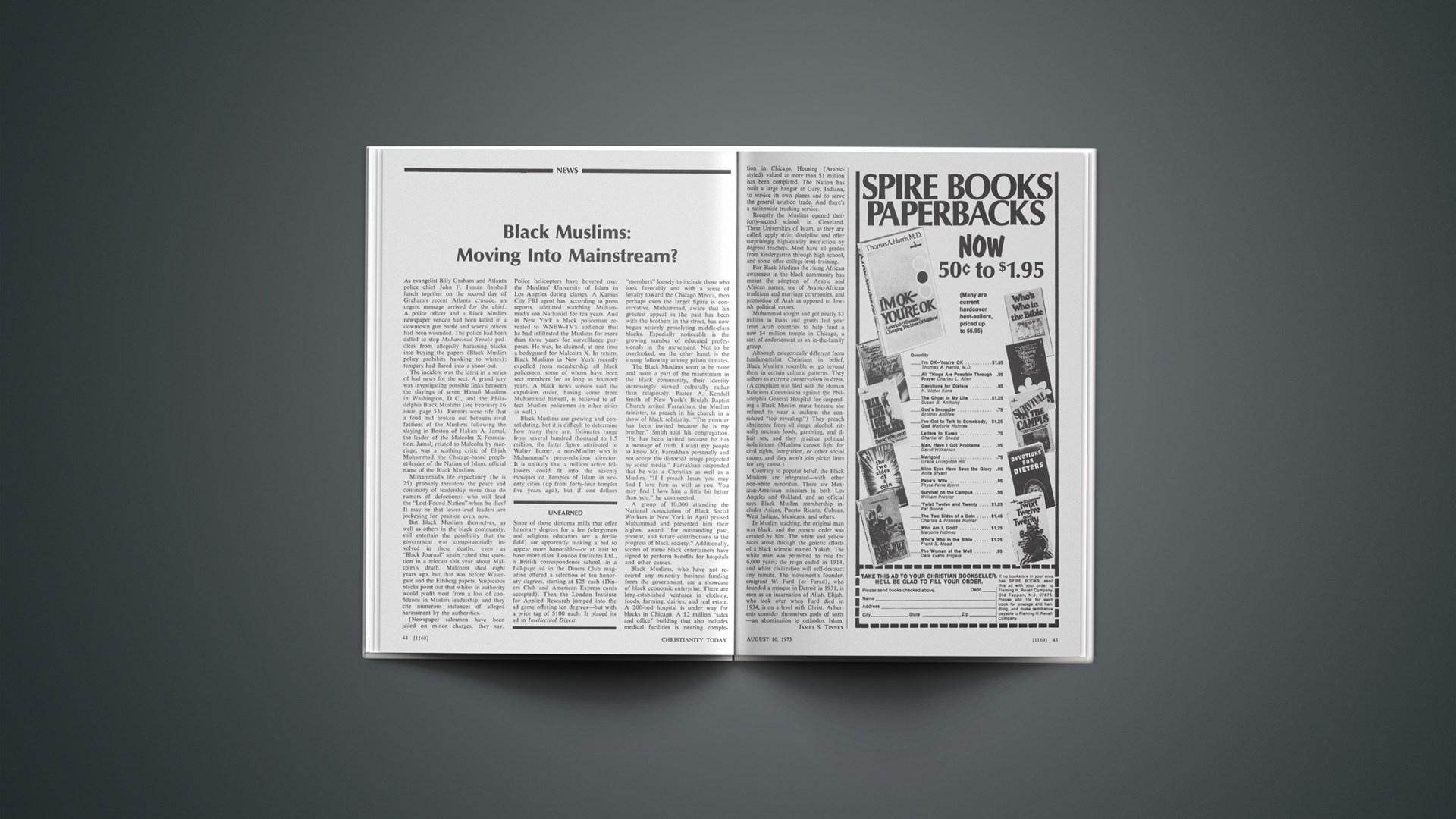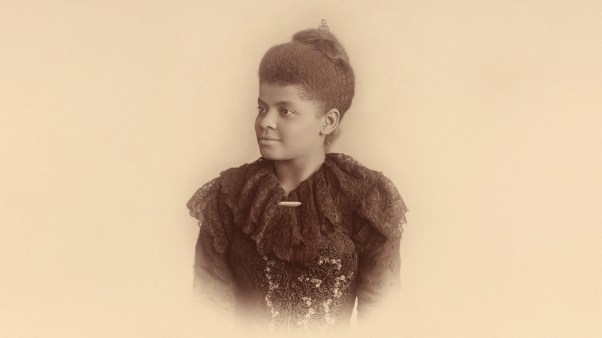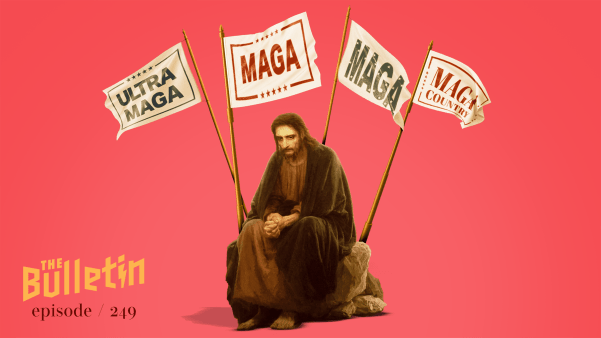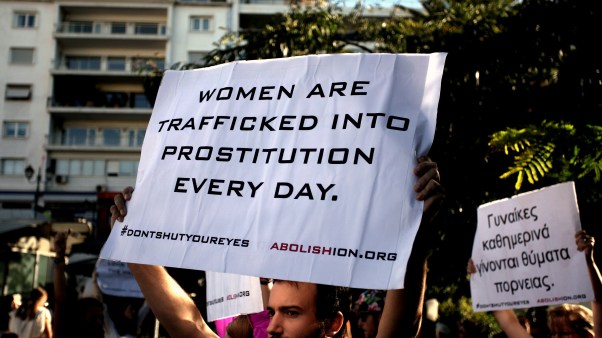As evangelist Billy Graham and Atlanta police chief John F. Inman finished lunch together on the second day of Graham’s recent Atlanta crusade, an urgent message arrived for the chief. A police officer and a Black Muslim newspaper vendor had been killed in a downtown gun battle and several others had been wounded. The police had been called to stop Muhammad Speaks peddlers from allegedly harassing blacks into buying the papers (Black Muslim policy prohibits hawking to whites); tempers had flared into a shoot-out.
The incident was the latest in a series of bad news for the sect. A grand jury was investigating possible links between the slayings of seven Hanafi Muslims in Washington, D. C., and the Philadelphia Black Muslims (see February 16 issue, page 53). Rumors were rife that a feud had broken out between rival factions of the Muslims following the slaying in Boston of Hakim A. Jamal, the leader of the Malcolm X Foundation. Jamal, related to Malcolm by marriage, was a scathing critic of Elijah Muhammad, the Chicago-based prophet-leader of the Nation of Islam, official name of the Black Muslims.
Muhammad’s life expectancy (he is 75) probably threatens the peace and continuity of leadership more than do rumors of defections: who will lead the “Lost-Found Nation” when he dies? It may be that lower-level leaders are jockeying for position even now.
But Black Muslims themselves, as well as others in the black community, still entertain the possibility that the government was conspiratorially involved in these deaths, even as “Black Journal” again raised that question in a telecast this year about Malcolm’s death. Malcolm died eight years ago, but that was before Watergate and the Ellsberg papers. Suspicious blacks point out that whites in authority would profit most from a loss of confidence in Muslim leadership, and they cite numerous instances of alleged harassment by the authorities.
(Newspaper salesmen have been jailed on minor charges, they say. Police helicopters have hovered over the Muslims’ University of Islam in Los Angeles during classes. A Kansas City FBI agent has, according to press reports, admitted watching Muhammad’s son Nathaniel for ten years. And in New York a black policeman revealed to WNEW-TV’s audience that he had infiltrated the Muslims for more than three years for surveillance purposes. He was, he claimed, at one time a bodyguard for Malcolm X. In return, Black Muslims in New York recently expelled from membership all black policemen, some of whom have been sect members for as long as fourteen years. A black news service said the expulsion order, having come from Muhammad himself, is believed to affect Muslim policemen in other cities as well.)
Black Muslims are growing and consolidating, but it is difficult to determine how many there are. Estimates range from several hundred thousand to 1.5 million, the latter figure attributed to Walter Turner, a non-Muslim who is Muhammad’s press-relations director. It is unlikely that a million active followers could fit into the seventy mosques or Temples of Islam in seventy cities (up from forty-four temples five years ago), but if one defines
UNEARNED
Some of those diploma mills that offer honorary degrees for a fee (clergymen and religious educators are a fertile field) are apparently making a bid to appear more honorable—or at least to have more class. London Institutes Ltd., a British correspondence school, in a full-page ad in the Diners Club magazine offered a selection of ten honorary degrees, starting at $25 each (Diners Club and American Express cards accepted). Then the London Institute for Applied Research jumped into the ad game offering ten degrees—but with a price tag of $100 each. It placed its ad in Intellectual Digest.
“members” loosely to include those who look favorably and with a sense of loyalty toward the Chicago Mecca, then perhaps even the larger figure is conservative. Muhammad, aware that his greatest appeal in the past has been with the brothers in the street, has now begun actively proselyting middle-class blacks. Especially noticeable is the growing number of educated professionals in the movement. Not to be overlooked, on the other hand, is the strong following among prison inmates.
The Black Muslims seem to be more and more a part of the mainstream in the black community, their identity increasingly viewed culturally rather than religiously. Pastor A. Kendall Smith of New York’s Beulah Baptist Church invited Farrakhan, the Muslim minister, to preach in his church in a show of black solidarity. “The minister has been invited because he is my brother,” Smith told his congregation. “He has been invited because he has a message of truth. I want my people to know Mr. Farrakhan personally and not accept the distorted image projected by some media.” Farrakhan responded that he was a Christian as well as a Muslim. “If I preach Jesus, you may find I love him as well as you. You may find I love him a little bit better than you,” he commented.
A group of 10,000 attending the National Association of Black Social Workers in New York in April praised Muhammad and presented him their highest award “for outstanding past, present, and future contributions to the progress of black society.” Additionally, scores of name black entertainers have signed to perform benefits for hospitals and other causes.
Black Muslims, who have not received any minority business funding from the government, are a showcase of black economic enterprise. There are long-established ventures in clothing, foods, farming, dairies, and real estate. A 200-bed hospital is under way for blacks in Chicago. A $2 million “sales and office” building that also includes medical facilities is nearing completion in Chicago. Housing (Arabic-styled) valued at more than $1 million has been completed. The Nation has built a large hangar at Gary, Indiana, to service its own planes and to serve the general aviation trade. And there’s a nationwide trucking service.
Recently the Muslims opened their forty-second school, in Cleveland. These Universities of Islam, as they are called, apply strict discipline and offer surprisingly high-quality instruction by degreed teachers. Most have all grades from kindergarten through high school, and some offer college-level training.
For Black Muslims the rising African awareness in the black community has meant the adoption of Arabic and African names, use of Arabic-African traditions and marriage ceremonies, and promotion of Arab as opposed to Jewish political causes.
Muhammad sought and got nearly $3 million in loans and grants last year from Arab countries to help fund a new $4 million temple in Chicago, a sort of endorsement as an in-the-family group.
Although categorically different from fundamentalist Christians in belief, Black Muslims resemble or go beyond them in certain cultural patterns. They adhere to extreme conservatism in dress. (A complaint was filed with the Human Relations Commission against the Philadelphia General Hospital for suspending a Black Muslim nurse because she refused to wear a uniform she considered “too revealing.”) They preach abstinence from all drugs, alcohol, ritually unclean foods, gambling, and illicit sex, and they practice political isolationism (Muslims cannot fight for civil rights, integration, or other social causes, and they won’t join picket lines for any cause.)
Contrary to popular belief, the Black Muslims are integrated—with other non-white minorities. There are Mexican-American ministers in both Los Angeles and Oakland, and an official says Black Muslim membership includes Asians, Puerto Ricans, Cubans, West Indians, Mexicans, and others.
In Muslim teaching, the original man was black, and the present order was created by him. The white and yellow races arose through the genetic efforts of a black scientist named Yakub. The white man was permitted to rule for 6,000 years; the reign ended in 1914, and white civilization will self-destruct any minute. The movement’s founder, emigrant W. Fard (or Farad), who founded a mosque in Detroit in 1931, is seen as an incarnation of Allah. Elijah, who took over when Fard died in 1934, is on a level with Christ. Adherents consider themselves gods of sorts—an abomination to orthodox Islam.
Argentina: A Vision For The Church
Revival and growth along both institutional and non-institutional lines are very much a part of the current Christian scene in Latin America. Correspondent Faith Sand Pidcoke, a missionary in Brazil, recently traveled to Argentina to study a renewal movement there. The following account is based on the report she filed.
Through the South American evangelical grapevine, ministers in Brazil, Chile, Uruguay, Paraguay, and Peru have been hearing that something is happening among Argentine churches. So nearly 200 of these ministers traveled to Argentina for a recent conference with about 200 Argentine pastors to take stock of the nameless but rapidly growing renewal movement in that country.
The movement has its roots in a charismatic-style prayer group of fifteen pastors and missionaries representing a number of denominational backgrounds that sprang up in 1967 in Buenos Aires. In their quest for deeper spiritual fulfillment the men invited Assembly of God pastor Juan Carlos Ortiz to address them at a retreat on the gifts of the Spirit. (Most of them had already privately received the tongues experience.) Recalling that retreat, Ortiz says a love was spawned that revolutionized the churches served by the men. But, he claims, “we are not a charismatic movement; we are a renewal movement. Our vision is the church.” (Ortiz says he was later forced out of his denomination for being too ecumenical and having services that were too “ordered.”)
In their interpretation of that vision, the movement’s ministers replaced the democratic structure of their churches with a “theocracy,” where Christ is head and where the pastors, in submission to Christ and to one another, wield authority over the congregations but in conjunction with the counsel of local “elders.” This has led to a de-emphasis of denominational issues and relations, and in turn—with tongues—it has resulted in the ouster of pastors from such groups as the Methodists, Baptists, Plymouth Brethren, and even the Assemblies of God. The Anglicans, Mennonites, and Catholics, however, have allowed their men to be involved. (Catholic priests are among those in the weekly meetings of the movement’s leadership.)
Another element in the vision is the establishment of a discipleship structure. Each pastor “reproduces” himself by discipling cell groups of five or six persons at a time who are then to do likewise. Churches are thus led almost naturally into social involvement. Because of the cell-group structure, leaders can learn quickly when financial or physical problems beset a member. A rather common occurrence is a holiday get-together to help a member build a house. Also common are special offerings to help someone who has pressing needs.
Says ex-Methodist minister Alberto Hiluca: “In seminary we were taught good works and brotherly love, but it wasn’t until I became involved in this renewal movement that I saw it really in action.” Others say that church services now are the occasion for “true” worship. And many credit the renewal for transformation of family life among members. Indeed, the necessity of right family relations was a prime topic at the pastors’ conference in Argentina (the minister must be a good husband, a good father, and a good minister—in that order).
A delegation of forty-one from Chile told of the difficulty they had in getting permission to leave their country to attend the conference. In fact, they said, there was a “miraculous” last-minute change of heart on the part of the chief official. But before leaving they were required to exchange all their money at a rate resulting in a 50 per cent loss. The other pastors at the conference took up an offering that more than paid their way back home.
Comments correspondent Pidcoke: “These people have the good works and the brotherly love of the liberals, the evangelical doctrine of the fundamentalists, and the mystical worship and praise of the Pentecostals. In short, they’ve put it all together.”
Home Evangelism, U.S.S.R.
Neighbors of Reform Baptist I. D. Kushnerchuk in the Soviet central Asian city of Frunze allegedly resent very much religious services held in Kushnerchuk’s apartment. Five hundred residents of the area gathered recently one evening to hear city officials and block-committee members attack Kushnerchuk’s illegal religious activities.
Kushnerchuk is said to be an organizer of the unregistered Baptist work in central Asia, Kazakhstan, and Siberia. On Saturday and Sunday he opens his Frunze apartment to gatherings of sixty to seventy, many of them children and teen-agers. The meetings are made attractive to youth by string and brass ensembles. During the services, Kushnerchuk reportedly distributes mimeographed hymns and sermons. He summarizes foreign religious broadcasts, apparently from transcripts, and distributes religious literature urging freedom of conscience.
On weekdays Kushnerchuk is persistent in evangelizing in his neighborhood and in the State Harvest Procurement office where he works. He invites nonbelievers to his weekend worship services, ignoring the alleged indifference shown him by many neighbors. The school vacation period is used as a time of recruiting children and youth into taking active part in services. Fines for breaking the laws on religious practice have been levied against Kushnerchuk several times.
The meeting closed with a warning to Kushnerchuk and his wife to cease their illegal activities. They were told that stricter measures will be taken if they persist in violating Soviet law.
ANGELO COSMIDES
Religion In Transit
Pastor David Bailey of First Baptist Church, Okawville, Illinois, pledged to his congregation that if membership grew to 100 or more he would “shout the news from the rooftop.” It did and he did. From the roof of the church he proclaimed that membership had reached 107.
Atheist Madalyn Murray O’Hair has apparently abandoned for now legal attempts to prevent daily prayers in Congress and Sunday services in the White House. She has not appealed a federal-court decision to dismiss her case.
Ninety-eight-year-old Parsons College, a liberal-arts school in Fairfield, Iowa, that was Presbyterian until it gained renown in the sixties as “dropout U” (for its policy of accepting students—for a stiff price—who couldn’t make it elsewhere), has folded. It listed $16 million in debts in a bankruptcy action.
Super-aggressive evangelistic pastor Jack Hyles of Hammond, Indiana, reports that his Hyles-Anderson College closed out its first year with 367 students, “the largest first-year enrollment experienced by any Christian college in America.”
Death: Anglican Church Women, 88, the national women’s organization of the Anglican Church of Canada, at a three-day meeting in Ottawa in mid-June, of complications involving women’s liberation.
Missouri’s 137-year-old anti-abortion law (it allowed abortion only to save the life of the mother) was voided by a federal court.
Governor and Mrs. George C. Wallace and singer Pat Boone were among the participants in a “Bibles For the World Spectacular” sponsored by the Auburn (Alabama) University Fellowship of Christian Athletes. It was the first in a projected series of rallies across the nation to raise funds for mailing New Testaments to every telephone subscriber in the world, a project of Rochunga Pudaite of Bibles For the World, a mission organization in Wheaton, Illinois. Alabamans were asked for $60,000 for Bangladesh.
United Methodists currently have 950 foreign missionaries, down from 1,300 four years ago. Personnel are available but funds are lacking (the foreign division had a $650,000 deficit in support last year), according to officials.
In its first annual report on investments, the Anglican Diocese of Toronto, Canada’s largest Anglican diocese, said it owns $10.7 million worth of securities. The local Catholic archdiocese reported it had over $5 million invested in stocks and bonds.
The Associate Reformed Presbyterian Synod at its annual meeting defeated a proposal to permit women to serve on church boards of elders, but also refused to rescind its 1972 action giving women the right to serve as deacons. The 400 delegates from twelve southeastern states also voted against abortion for convenience.
An American Lutheran Church grant of $10,000 originally allocated for the American Indian Movement but later diverted to the National Indian Lutheran Board was redirected back to AIM by the NILB Executive Committee.
A survey for Ebony shows that blacks as a whole are strong believers in personal morality, the monogamous family unit, and economic self-sufficiency, but they are split down the middle on whether integration is preferable to separation. “The internal values of the black community are characterized by a strong commitment to the basic Protestant Ethic,” the researchers concluded.
The 400-member Charismatic Communion of Presbyterian Ministers is changing its name to Presbyterian Charismatic Communion to accommodate lay members. Meanwhile, 300 Episcopal clergy have formed the Episcopal Charismatic Fellowship with cleric R. H. Hawn of Denver as executive secretary.
The predominantly black National Baptist Convention, U.S.A., Inc. has at last established a ministerial retirement plan, with an initial outlay of $2 million. Participation is voluntary.
Personalia
United Presbyterian Arthur R. McKay, former president of the Colgate Rochester Bexley Hall Crozer seminary complex in Rochester, New York, is the new pastor of the 2,000-member Knox Presbyterian Church in Cincinnati. McKay also was once president of Chicago’s McCormick Seminary.
World chess champion Bobby Fischer has become disenchanted with Herbert W. Armstrong’s Worldwide Church of God, according to some reports. The eccentric Fischer, reportedly in seclusion in Denver with an ex-member of the church, has been a backer of the church but has not been baptized into its membership.
Presbyterian missionary pilot George Glass recently discovered Brazil’s tallest waterfall while flying in the northern state of Bahia. Now officially named Glass Falls, it has a drop of 1,320 feet.
In what may be a first, the Westminster Presbyterian Church in Greenville, South Carolina, has as an elder-elect a 16-year-old girl: Becky Taylor.
Living Bible paraphraser Kenneth N. Taylor received Christian Endeavor’s highest citation for distinguished service to youth at CE’s fifty-second international convention held in Indiana.
Named as new evangelism director of the Southern Baptist Convention: C. B. Hogue, 45, Oklahoma evangelism executive. He succeeds Kenneth Chafin, now a Houston pastor. (He is not related to noted SBC evangelist Richard Hogue, also an Oklahoman.)
Liberian president William R. Tolbert during his recent tour of the United States spoke at worship services in Baptist churches in Brooklyn, Dallas, and San Francisco, and delivered the commencement address at Bishop College in Dallas. At home in Liberia, President Tolbert serves as pastor of Zion Praise Baptist Church in Bentol City and as president of the Liberian National Missionary and Educational Convention.
Smith Falls, Ontario, pastor Donald A. Timpany was elected president of the Baptist Convention of Ontario and Quebec at the denomination’s annual assembly, held in Hamilton, Ontario.
World Scene
Methodist bishop Mortimer Arias of Bolivia says Methodists in his country have given top priority to evangelism, church growth, and congregational life.He adds that U. S. missionaries are “needed and useful.”
Missionary radio is getting through. Radio Lumière in Port-au-Prince, Haiti, sponsored a quiz contest based on a Saturday health course it broadcast for school children. The contest, limited to fifth and sixth graders, drew more than 22,000 responses.
Attacks against alleged “political activities” on the part of religious believers are still going on in Yugoslavia’s government-controlled mass media. A Zagreb radio report cited especially “insistence on the observance of religious feast days by religious communities.”
Assemblies of God missionary Olga Olsson on a recent tour of Romania found a spirit of revival sweeping many churches there. Services lasting up to five hours were packed with overflow crowds standing outside doors and windows, she says. Her report confirms an earlier account in CHRISTIANITY TODAY.
More than 300 turned out for an interdenominational National Convention of Christian Education, the first in 125 years of evangelical mission work in Colombia. It was held in Medellin on the campus of the 480-student United Biblical Seminary of Colombia, which sponsored it in conjunction with the land’s evangelical churches and missions.
Immediate repeal of Britain’s liberal Abortion Act of 1967 was called for in a close vote of the ruling body of the Episcopal Church in Scotland (Anglican).
Secular newspapers in Britain fueled a furor over the way bishops are selected in the Church of England (the monarch appoints them through the prime minister) after a diocesan advisory committee’s nominees were ignored in the appointment of bishop of Chester Gerald Ellison, 63, as bishop of London. The Church Times, an independent Anglican journal, backhandedly slapped the committee for leaking the news and, in effect, told the secular papers to cool it.
Pope Paul may be concerned about the burgeoning Pentecostal movement in his church. At a recent public audience he commented: “We should reflect on whether certain groups in search of the Holy Spirit, that prefer to isolate themselves to avoid both the directing ministry of the Church and the anonymous crown of unknown brothers, are on the right road.”










